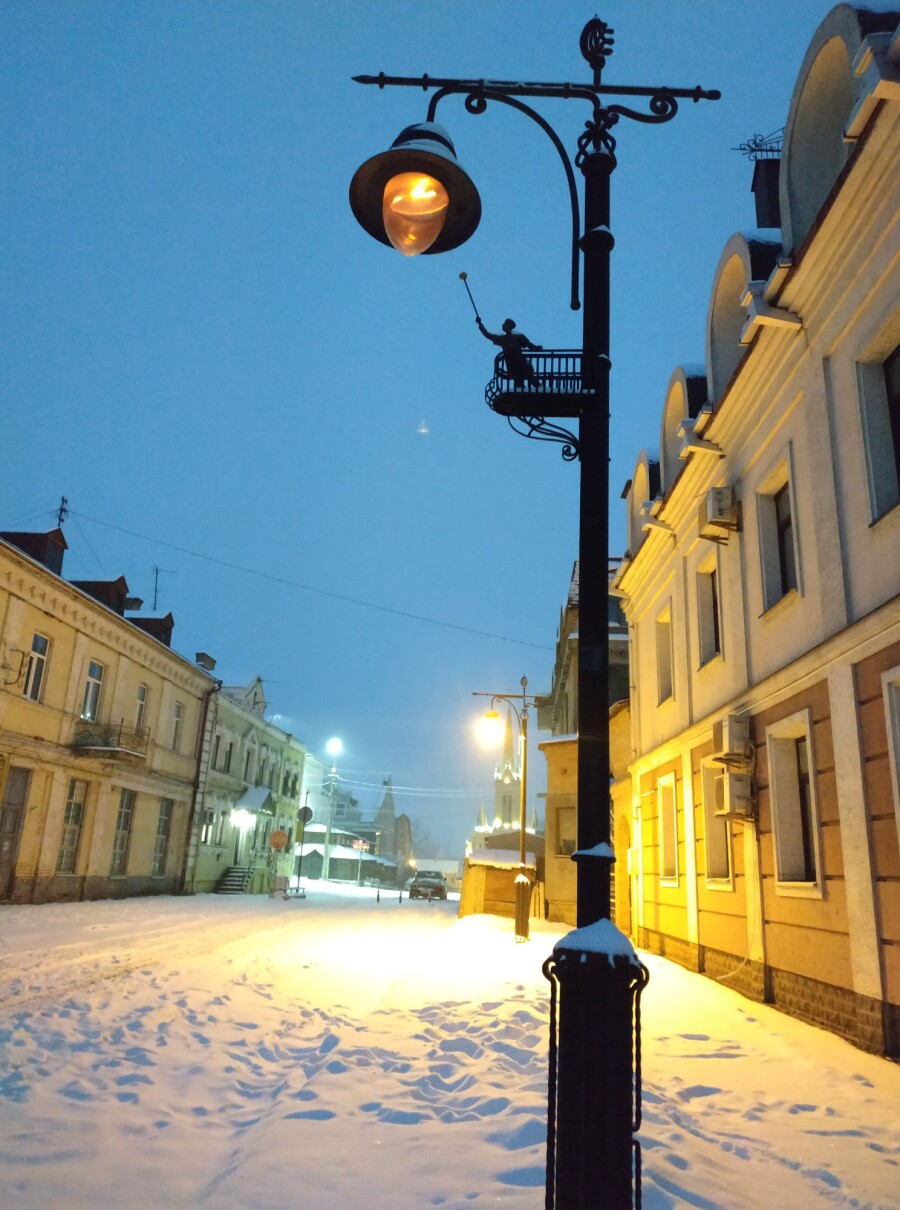Знайомтесь-Вогняр! Meet Vogniar!

Знайомтесь-Вогняр!
Коли вечірні сутінки огортають місто, через таємні двері Вогняр виходить на власні секретні балкончики і запалює міські ліхтарі. Потім він легкою тінню гуляє вечірнім містом і чекає, коли крізь простір і час зазвучить голос Вартків: “Вже десята на дзиґарі, гасіть світло, господарі...” Почувши його, він починає гасити вогні. Місто засинає...
Кликун (або глашатай) – давня шанована професія у європейських містах доби Середньовіччя (XV-XVIІ ст.), яка полягала, перш за все, в інформуванні міщан про найважливіші події міста і країни. Кликуни повідомляли жителям міст найрізноманітнішу інформацію: оголошували королівські укази, розпорядження магістрату – міського уряду, сповіщали городян про збір податків, про вшанування уславлених полководців, прибуття в місто чужоземних послів, чергову роздачу хліба або грандіозну циркову виставу, виклик громадян до суду, винесення вироків, виконання страт тощо. Будь-яка важлива юридична справа підлягала «обволанню» кликуном у людних місцях. У Луцькому замку кликуни, окрім іншого, стояли на нічній варті та «кликали» – постійно перегукувалися, а в разі пожежі чи нападу ворогів били на сполох. Звідси й пішла місцева назва професії — кликун. Нині головний Луцький кликун сурмить з В'їзної вежі Луцького замку протягом туристичного сезону у будні о 12.00, у вихідні та святкові — о 12.00 та 18.00.
Meet Vogniar!
When the evening twilight wraps the city, Vogniar through the secret door goes to his own secret balconies and turns on the city lights. Then he walks through the evening city and waits for the voice of Vartko to sound through space and time: “It’s already ten o’clock, turn off the lights...” Hearing him, he begins to put out the lights. The city falls asleep…
Klykun (or herald) is an ancient profession respected in the European cities of the Middle Ages (15th-17th centuries) which, first of all, consisted in informing the citizens about the most important events of the city and the country. Klykuns provided the inhabitants with a variety of information: announced royal decrees and orders of the magistrate (the city government), informed citizens about the collection of taxes, the honouring of famous commanders, the arrival of foreign ambassadors in the city, the next distribution of bread or a grand circus performance, the warnings to appear in court, the pronouncement of sentences and executions, etc. Any important legal case had to be “shouted” by the klykuns in crowded places. In Lutsk Castle klykuns, among other things, stood as a night guard, constantly “cried” to each other and alerted in case of fire or enemy attack. In that case appeared the local name of the profession – klykun (or “Crier”). Now the main Lutsk klykun trumpets from the Entrance tower of Lutsk castle during tourist season on weekdays at 12 o’clock and on weekends at 12 and 18 o’clock.
